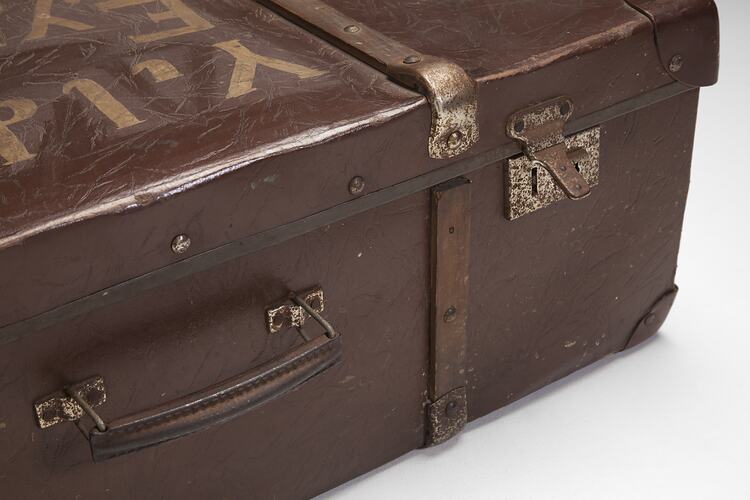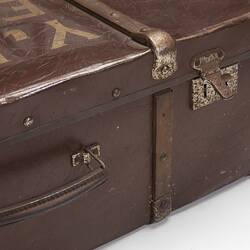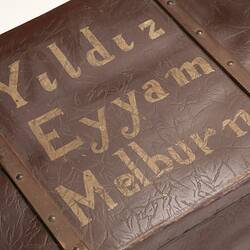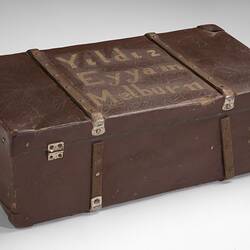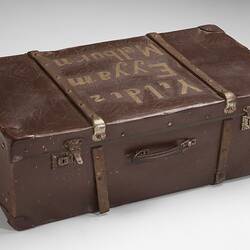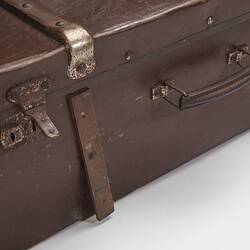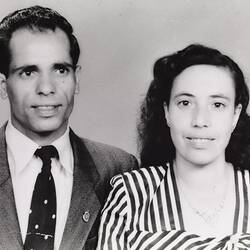Summary
Brown leather suitcase brought to Australia by Yildiz Eyiam (Eyyam) when she migrated from Polis in north-west Cyprus on the 'Corsica' in December 1951.
Yildiz, born in 1925, arrived at Station Pier in Melbourne in January 1952. She had married Redjeb Eyyam by proxy (interestingly, the marriage permit indicates that Redjeb was present at the ceremony and a proxy stood in for Yildiz, suggesting that the ceremony took place in Australia). Redjeb, born in 1922, had already migrated to Melbourne in 1949 to escape the economic hardships of post World War II Cyprus. The couple had never met. His name was changed to Eyiam at the passport office in Cyprus. Neither spoke English and they were among only a small number of Turkish Cypriot migrants to come out to Australia. Redjeb found no work in his trade as a bootmaker and worked in factories, taking in boarders to help pay the mortgage in Footscray. The couple had four children and over the years sponsored other relatives to migrate to Australia. Yildiz returned to Cyprus a number of times; Redjeb never went back.
Physical Description
Brown hard leather suitcase with two wooden rib bands around entire circumference with metal studs and corners. Two bands missing corners and one band missing at bottom of case. Two metal pop-locks with key holes, two metal hinges and a leather handle on side with metal attachments. Suitcase fitted with reinforced leather corners. Interior lined with wallpaper, printed orange, yellow, red and green floral pattern on cream background. Two green cloth strap remnants on each side. Top of case inscribed in gold paint.
Significance
This item is part of a collection which represents a small and lesser known community of migrants in Melbourne - Turkish Cypriots. The collection of photographs, documents and the suitcase also all help to tell stories relating to proxy marriage (common particularly amongst the Italian, Greek and Maltese migrants), and the practice of changing the names of migrants both before and after arrival in order to adapt to the demands and expectations of an English-speaking country.
More Information
-
Collecting Areas
-
Acquisition Information
Donation from Sherife Seyit, 13 Jul 2011
-
User
-
Inscriptions
Top of case: 'Yildiz Eyyam Melbourne'.
-
Classification
-
Category
-
Discipline
-
Type of item
-
Overall Dimensions
720 mm (Width), 390 mm (Depth), 230 mm (Height)
-
Keywords
Migration & Settlement, Shipboard Travel, Station Pier, Water Transport
